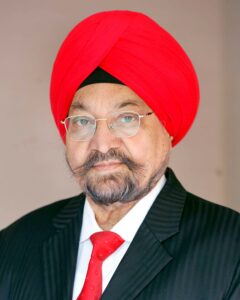
When a comedian’s parody can provoke a police case, vandalism, and political outrage, it says far more about the fragility of those in power than the strength of their positions. In Maharashtra, Kunal Kamra’s satirical jibe — an improvised parody of a film song using the word gaddar (traitor) — has triggered an astonishing overreaction by supporters of Deputy Chief Minister Eknath Shinde. What began as a stand-up joke has now spiraled into a serious assault on freedom of expression, with police FIRs, venue attacks, and even municipal demolitions. Kamra didn’t name anyone. But thin-skinned leaders and their hyper-loyal mobs did the math, and the comedian is now being hunted for hurting the “sentiments” of the politically powerful.
Let’s be clear: this is not about satire crossing a line. This is about politicians who want to abolish the line entirely, placing themselves in a space where laughter is not permitted, criticism is criminalized, and public mockery is treated as treason.
Satire Has Always Made Kings Nervous — And Citizens Brave
Centuries before Kamra stood on a stage in Mumbai, court jesters in medieval Europe were the only ones allowed to speak uncomfortable truths to monarchs — under the guise of comedy. In France, Molière used biting comedies to ridicule hypocrisy and corruption in the 17th century. His plays were so pointed that clergy and aristocrats tried to shut him down. But Louis XIV, to his credit, saw the value of satire and protected him.
Flash forward to the 18th century. The great English satirist Jonathan Swift, in his essay A Modest Proposal, suggested (with brutal irony) that the Irish poor should sell their children as food to the rich. It was shocking — but it was satire. And it laid bare the cruelty of British colonial policy in Ireland more effectively than any official protest.
Even in modern America, late-night comedians like Jon Stewart and John Oliver have often done the job that journalists wouldn’t — exposing hypocrisy, war propaganda, and corporate corruption. Stewart’s takedown of CNN’s Crossfire was so impactful that the show was eventually canceled. Did anyone arrest him? No. The satire forced institutions to reflect and reform.
Satire, in every era, holds up a mirror. And the ones who smash the mirror aren’t protecting society — they’re protecting their image.
Why Indian Politicians Fear the Punchline
In India today, the political class increasingly wants to be treated not as public servants but as sacred cows — revered, untouched, unchallenged. Any attempt to joke about them is treated not as a healthy sign of democratic discourse but as blasphemy.
And this fear of laughter isn’t limited to Maharashtra. Cartoonist Aseem Trivedi was jailed on charges of sedition. Stand-up comics have been targeted, canceled, or investigated for jokes they never even told (as in the case of Munawar Faruqui). Even social media satire now invites FIRs from aggrieved political workers. These are not isolated incidents; they represent a full-blown war on satire.
The irony is that many of these politicians rose to power by mocking others — attacking opponents with slogans, memes, and street plays. But once in power, they want immunity from the very tools they once wielded. The message is clear: you can ridicule, but only if it serves us.
Kamra’s “Crime”: Daring to Joke in Public
Let’s revisit what actually happened. Kamra sings a parody using the word gaddar. Shinde’s followers — seeing themselves in the unnamed figure — vandalize the performance venue. Instead of reining them in, the Mumbai police books Kamra under new criminal laws for “promoting enmity” and defamation. The municipal corporation suddenly finds “unauthorized structures” and demolishes parts of the venue.
This is not law enforcement. This is punishment theatre. This is politics using state machinery to settle personal scores — dressed up as protecting “public sentiment.”
And the most chilling part? The government wants a public apology. Why? Because satire dared to wound pride. This is less about law and more about forced humiliation — the kind of authoritarian reflex you expect from regimes that fear jokes more than they fear corruption.
Democracy Dies When You Can’t Laugh at It
Laughter, especially in hard times, has always been a form of resistance. It relieves pressure. It exposes hypocrisy. It says: I see you, and I’m not afraid to call you out. The moment politicians become immune to satire, they also become immune to accountability.
The Constitution of India guarantees freedom of expression. But today, we live in a country where the right exists only on paper — like a toy gifted to a child, but locked away in a glass box. The Kamra episode is just the latest reminder: if you’re an artist, your right to speak ends where a politician’s ego begins. It doesn’t have to be this way.
India has a long, proud tradition of humor — from Tenali Raman and Birbal to Jaane Bhi Do Yaaro and Political Punch. Satire has always helped us cope, and more importantly, helped us think. If we begin punishing it, we’re not just silencing comedians — we’re silencing citizens.
Let the Politicians Take a Joke
History teaches us that satire doesn’t destroy democracy — it protects it. The French Revolution had its caricatures, the American civil rights movement had its protest songs, and the fight against apartheid had sharp political theatre.
So, here’s some free advice to India’s politicians: learn to take a joke. If you can’t laugh at yourselves, maybe you’re the problem, not the punchline.



Be the first to comment